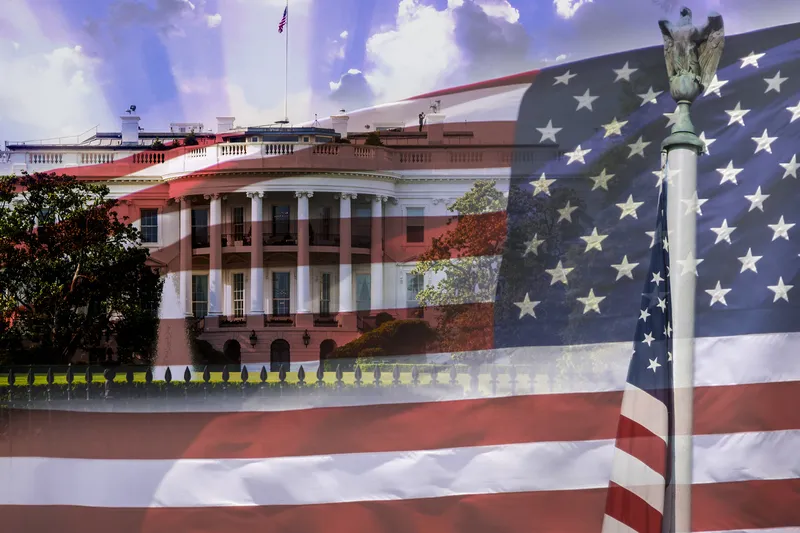The possibility of a gasoline tax increase to help pay for federal highway improvements was attracting increased attention in the US Congress as a prominent conservative Republican on Thursday said he was willing to consider the move.
According to Reuters, Senator Orrin Hatch, the new chairman of the Senate Finance Committee that oversees tax measures, told reporters he has an open mind on raising the 18.4 cents per gallon tax levied at the gasoline pump.
"I prefer not to increase taxes, but to me tha
January 12, 2015
Read time: 3 mins
The possibility of a gasoline tax increase to help pay for federal highway improvements was attracting increased attention in the US Congress as a prominent conservative Republican on Thursday said he was willing to consider the move.
According to Reuters, Senator Orrin Hatch, the new chairman of the Senate Finance Committee that oversees tax measures, told reporters he has an open mind on raising the 18.4 cents per gallon tax levied at the gasoline pump.
"I prefer not to increase taxes, but to me that's a user fee. People who use the highways ought to pay for them. And that's a small price to pay to have the best highway system in the world," Hatch said.
Nevertheless, the idea faces an uphill fight, especially in the House of Representatives.
Another prominent Republican, Senate Commerce, Science and Transportation Committee chairman John Thune, said that no highway funding mechanism ideas should be taken off the table.
Also this week, the second-ranking Senate Democrat, Senator Dick Durbin, said now was the time to raise the tax but that it should be done in a way that does not penalise lower-income motorists.
However, there was plenty of scepticism that a gasoline tax hike would actually happen; House Speaker John Boehner noted to reporters that there likely were insufficient votes in his chamber to pass a gasoline tax increase, saying "I've never voted to raise the gas tax."
Improving fuel efficiency of vehicles driven in the United States has made it more difficult for Washington to rely on the tax to provide adequate revenues for road-building.
The gas tax, which predates the development of the Interstate Highway System by nearly two decades, has been the primary source for federal transportation projects since its creation in the 1930s. Receipts from the tax have been outpaced by transportation expenses by about US$16 billion annually in recent years as construction costs have risen and cars have become more fuel efficient.
The current level of federal spending on transportation is about $50 billion per year, but the gas tax only brings in about $34 billion annually at its current rate.
Transportation advocates have argued that increasing the gas tax for the first time since 1993 would be the easiest way to close the gap. Lawmakers’ reluctance to ask drivers to pay more at the pump has doomed previous attempts to increase the gas tax.
According to Reuters, Senator Orrin Hatch, the new chairman of the Senate Finance Committee that oversees tax measures, told reporters he has an open mind on raising the 18.4 cents per gallon tax levied at the gasoline pump.
"I prefer not to increase taxes, but to me that's a user fee. People who use the highways ought to pay for them. And that's a small price to pay to have the best highway system in the world," Hatch said.
Nevertheless, the idea faces an uphill fight, especially in the House of Representatives.
Another prominent Republican, Senate Commerce, Science and Transportation Committee chairman John Thune, said that no highway funding mechanism ideas should be taken off the table.
Also this week, the second-ranking Senate Democrat, Senator Dick Durbin, said now was the time to raise the tax but that it should be done in a way that does not penalise lower-income motorists.
However, there was plenty of scepticism that a gasoline tax hike would actually happen; House Speaker John Boehner noted to reporters that there likely were insufficient votes in his chamber to pass a gasoline tax increase, saying "I've never voted to raise the gas tax."
Improving fuel efficiency of vehicles driven in the United States has made it more difficult for Washington to rely on the tax to provide adequate revenues for road-building.
The gas tax, which predates the development of the Interstate Highway System by nearly two decades, has been the primary source for federal transportation projects since its creation in the 1930s. Receipts from the tax have been outpaced by transportation expenses by about US$16 billion annually in recent years as construction costs have risen and cars have become more fuel efficient.
The current level of federal spending on transportation is about $50 billion per year, but the gas tax only brings in about $34 billion annually at its current rate.
Transportation advocates have argued that increasing the gas tax for the first time since 1993 would be the easiest way to close the gap. Lawmakers’ reluctance to ask drivers to pay more at the pump has doomed previous attempts to increase the gas tax.








